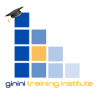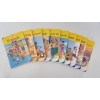ASSESSMENT AND REPORT ( Beskikbaar in Afrikaans)
Subject choices made in grade 9 are the first of many career choices feeding directly into future happiness and success. This two-hour assessment looks at three kinds of information needed to choose subjects:
Academic abilities. Everyone has different levels of different academic abilities involved in learning and doing exams. Each subject requires different abilities. The aim is to find the best fit of abilities for subjects.
Career interests. Subjects should be chosen to match the learner’s current career interest. This is assessed using the Field-Environment-Duty inventory of jobs, which asks for choices from lists of career fields, places of work, and types of work to be done.
Suggestions for other suitable careers. The danger is that, by matric, many Grade 9s change their minds about the careers they want to follow, and find they are doing the wrong subjects. By assessing their career personality against jobs that make people happy and successful, options can be suggested.
Subjects must take into account tertiary education requirements, the basic knowledge needed for the career (that may not be studied after matric), as well as the kind of thinking needed for the career. For example, History is useful for a career in law because it teaches the cause-and-effect thinking used by lawyers; Physical science is needed for a career in computers because it teaches a logical approach to develop and using computer programs.
An example of the
pdf
Subject Choice report
(31 KB)
you will receive is given.
It includes:
- Subjects related to academic abilities.
- Strong academic abilities.
- Academic abilities that may need developing, and suggestions on how to improve them.
- Career interests.
- Optional careers.
- Taking all this into account, suggested subject choices for grade 10.
This assessment has been compiled by Dr. Louise Holman from the Holman Institute for Educational and Psychological Evaluation and Research. The evaluation and report will be administered by Dr. Holman.
What do parents say? One of the advantages that parents talk of is that they get to see what their teenagers are thinking! This is apart from finding out which academic abilities need work and how to improve them. The effects of subject choice testing (or not) are generally felt after 3 years in Grade 12. Grade 9 learners often change their minds about what tertiary studies they want to do, finding that the wrong subjects have been chosen based only on stated interests in Grade 9.
































